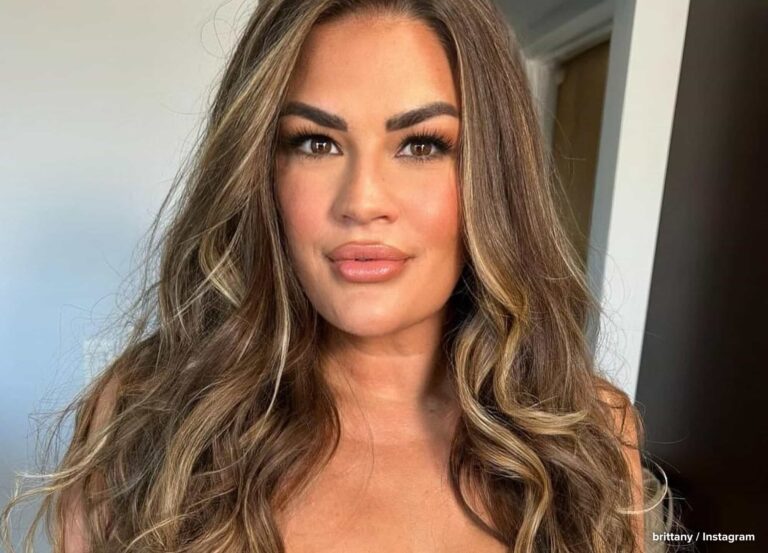Whether you’re a fan of Watch What Happens Live or have merely used the internet in recent months, chances are you’ve been inundated with information and advertising about Ozempic, a once-weekly weight-loss injection medication. The treatment has been branded a “cheat code” for many—an easy way to drop pounds without much effort. It’s also generally regarded as a much simpler alternative to bariatric surgery, though the truth is that with proper education and support, both can save lives.
But when it comes down to choosing between bariatric surgery and Ozempic (or Wegovy, the same drug, a member of a class of medications known as GLP-1 agonists), the decision is not necessarily cut and dried. Sure, some surgical options require patients’ BMI to be high in order to be candidates, but not all individuals who qualify for bariatric surgery will opt for Ozempic or Wegovy. You can even combine the two, to enhance and maintain your results—your doctor will be best able to determine if that’s right for you.
If you’re doing your initial research and are stumped about where to start, keep reading. Here, we break down exactly how to figure out whether Ozempic vs. bariatric surgery is best for your needs. Just remember, there is no “easy fix” for weight loss—while both bariatric procedures and semaglutide can seemingly make pounds melt away, there is no maintenance without hard work.
How much weight do you have to lose?
If you’re substantially overweight, with a BMI in the high 40s, into 50, or beyond, surgery will often be your best solution. “I always feel that if a patient is amenable to surgery and they meet the criteria, it has been proven to be the most effective long-term treatment for obesity,” says Dr. Angela Glasnapp, a board-certified bariatric surgeon at New York Bariatric Group. Studies show that Wegovy offers about 15–18% total body weight loss, while another study of gastric bypass surgery showed that patients lost more than 28% of their total body weight.
However, Dr. Glasnapp will often prescribe a GLP-1 agonist for a patient who is a good surgical candidate, ahead of any more invasive procedure. “I’ve used [GLP-1 agonists] when patients are contemplating surgery but are not sure and want to get started,” she says. “I’ve also used the medications in preparing patients for surgery, if they need to lose some weight to make them healthier beforehand.” In cases of morbid obesity, this may be a requirement of a bariatric surgeon. “The liver can literally become 10 times bigger than that of a normal person in a morbidly obese patient, which makes it significantly harder to operate during a surgical intervention,” explains Dr. Steven Batash, a board-certified gastroenterologist in Rego Park, New York. In addition to having the liver shrink with weight loss, so too will the effects of sleep apnea, the severity of diabetes, and the patient’s high blood pressure. Losing weight ahead of surgery will decrease risk during your procedure. “One option, about five years ago, used to be to get a gastric balloon, lose about 40 pounds, and then go back to the surgeon,” he says. “Now a much better option to lose that weight is a medication like Ozempic.”
If you don’t have much weight to lose (perhaps you’re on the low side of the BMI range for “overweight”), then Ozempic may be a good option for you. Unfortunately, this is often who you hear about in the press—women with expendable income that just want to lose a few pounds. “There’s a tendency in the media to put down this segment of the population,” says Dr. Batash. “My response to that is, don’t be sexist—when they frown upon this kind of behavior, they always talk about women, never men.” Remember, women often have a harder time managing their weight than men, due to hormonal shifts during menstruation, pregnancy, and perimenopause. Dr. Batash shared that he’s tried Ozempic for the same reason that women are often lambasted in the press—wanting to lose 10 or so pounds—and he feels much better since doing so. “Some people think that losing weight should only be the prerogative of people who weigh 300 or 400 pounds—I would strongly disagree,” he says.
Do you have preexisting health conditions?
You need to be healthy enough to undergo a major operation under general anesthesia to pursue a bariatric procedure, and there are plenty of factors that could render you ineligible for surgery. Some may be medical conditions that were exacerbated by your weight gain; others could be out of your control. For example, Dr. Glasnapp shares that bariatric surgeons tend to prefer not to operate on patients over age 70. “If they have comorbidities—like they can’t get off a blood thinner because of cardiac disease—or their cardiologist won’t clear them [that would preclude them from surgery],” she adds.
Not everyone is a candidate for Ozempic either. If you have a family history of medullary thyroid cancer or type 2 multiple endocrine neoplasia syndrome (both of which are rare) or a history of pancreatitis, you won’t be able to take it, says Dr. Glasnapp. “In some patients with suicidal ideation history, sometimes those thoughts can be exacerbated by the medication, although that’s rare,” she says.
Patients who are overweight because of a medical condition, such as diabetes or polycystic ovarian syndrome (PCOS), and do not have the above concerns may be ideal candidates for Ozempic. These health issues often cause insulin resistance, causing weight gain that is resistant to loss, often even with consistent exercise and a healthy diet. Not all of these patients will qualify for a bariatric procedure, but losing weight would greatly improve their quality of life. Ozempic helps to regulate insulin levels and shed excess weight. Dr. Glasnapp notes that it’s a phenomenal drug for patients with PCOS. Excess weight in these patients can have a serious effect on their ability to conceive; addressing that can be life changing. “You have some women who weigh 150 pounds who have PCOS, and losing that 10–15% of their body weight will skyrocket their fertility,” says Dr. Batash.
Do you struggle with “food noise” in your brain?
Not everyone can relate to this phenomenon, but if you’ve ever found yourself interminably hungry even though you know you’ve eaten more than enough, Ozempic can be a game changer. The medication works by not only delaying the rate at which food empties from your stomach by around seven hours but also telling your brain that you’ve been satiated. “A lot of people will eat until they come to a point where they’re full,” explains Dr. Batash. “But many people at this point say, ‘Even though I know that my stomach is full. I’m still hungry—I want to keep on eating.’ The stomach is trying to send a message of fullness to the brain, but the brain isn’t processing the message in real time.” On Ozempic, you’ll eat until you feel full, which will be sooner rather than later,and you lose the desire to keep eating.
And if you’ve spent hours scrolling on Seamless, deciding what to eat; agonized over what to make for dinner because you want to “optimize” every meal; or lain in bed, obsessing over a snack in your pantry, Ozempic can be revolutionary for this too. “It controls cravings for certain food groups as well as alcohol,” says Dr. Glasnapp. A recent article in The New York Times shared anecdotal evidence that those who had typically enjoyed a glass of wine (or three) no longer had the desire to drink and, in some cases, were repulsed by the thought of alcohol. A clinical study of semaglutide (Ozempic) and its effect on alcohol use disorder is currently underway.
To some extent, bariatric procedures can curb this interminable desire to eat too, and after surgery and while taking Ozempic, many patients will find that they have to remind themselves to eat consistently. But over time with surgery—and after ceasing use of a GLP-1 agonist—old patterns may come back, which is why nutritional counseling is so critical; Dr. Glasnapp recommends patients seek guidance at a cadence of every month or even every two weeks until they feel more comfortable.
A lot of ground is covered during nutritional counseling. Perhaps the greatest focus is exactly what you’re eating: “We need to make sure patients are getting in enough protein, because you want to lose fat and not muscle mass,” she says. (She notes that she believes this is a leading cause of “Ozempic face.”) Patients will also need to eat enough fiber and drink plenty of water, to support gastrointestinal motility and avoid constipation, as well as get enough nutrients. “With certain types of bariatric surgery, malabsorption and nutritional deficiencies are more common, so vitamins are very important in addition to the protein that they eat,” says Dr. Glasnapp.
You also will work on portion size and your relationship with food. “You’re trying to build good habits,” says Dr. Batash. “Unless you’re willing to change your relationship to food, the effects of these medications or even surgical procedures are going to be transient.”
Are you open to surgery?
This is fairly straightforward—not everyone wants to go under the knife. “I always feel that if a patient is amenable to surgery and they meet the criteria, it has been proven to be the most effective long-term treatment for obesity,” says Dr. Glasnapp. But if they’re against surgical intervention, GLP-1 agonists are a great second choice, she notes. “People who never would seek help because they really don’t want surgery now have another option,” she says. Dr. Batash adds that even if a patient may need to lose 200 pounds, losing just 50 pounds will provide a benefit. “Ozempic is not going to get you to where you need to be, but something is better than nothing,” he says.
How much of a financial commitment are you willing to make?
Neither bariatric surgery nor Ozempic is always going to be affordable. Insurance coverage may defray the costs significantly, but keep in mind that out of pocket, Ozempic can cost more than $1,000 for a month of treatment, while gastric bypass costs around $8,000 on average, with Orbera (gastric balloon) being comparable in price (it can be a good alternative to both if you prefer not to be on a lifelong medication or to undergo surgery). And remember, none of these options are permanent solutions—even gastric bypass can be defeated by consistent overeating. Many patients find themselves seeking out revision bariatric surgery; the key to success here is the aforementioned nutritional counseling.
If you’re a good candidate with more weight to lose and are prepared to show a lot of discipline, which Dr. Batash says is key, you may prefer to go the surgical route. While the cost may be steeper up front than several rounds of Ozempic, it’s ultimately more affordable. “The medications are really meant to be lifelong,” says Dr. Glasnapp. “We say obesity is a lifelong disease, so the medications are made to be long term. We know that patients who lose a considerable amount of weight on these medications and then stop them can have some weight recurrence.” If you can’t get Ozempic or Wegovy covered by insurance, your prescription may quickly become a financial burden.
And unfortunately, it’s not just women with lower BMIs who don’t qualify for coverage. A lot of Medicare and Medicaid plans don’t cover GLP-1 agonists. “Unfortunately, in the society we live in, the insurance companies that provide medical care—it’s business,” says Dr. Batash. “It would be in everybody’s interests if these medications were covered, because if you help control somebody’s weight, you will prevent things like heart attacks, high blood pressure, diabetes, the destruction of hips, knees, and the heart. But these savings will be realized 10 years down the road.” Considering that poverty and obesity are intertwined—this study shows that in America, counties with poverty rates over 35% have obesity rates that are 145% greater than those of wealthy counties—Medicaid coverage of GLP-1 agonists could be transformative.
There’s also a great deal of work to do nationwide when it comes to recognizing that obesity is a disease and people suffering from it need support rather than judgment, which could go a long way toward getting patients the medical intervention they need in a more affordable way. “There’s still a stigma with weight, which is really disgusting to me,” says Dr. Glasnapp. “People, even our own government [leaders], don’t realize that it’s a disease—it’s very frustrating, knowing that there are options that can be super helpful but insurance just doesn’t cover them. Obesity shouldn’t be treated any differently from hypertension or diabetes or any other metabolic disease.”











